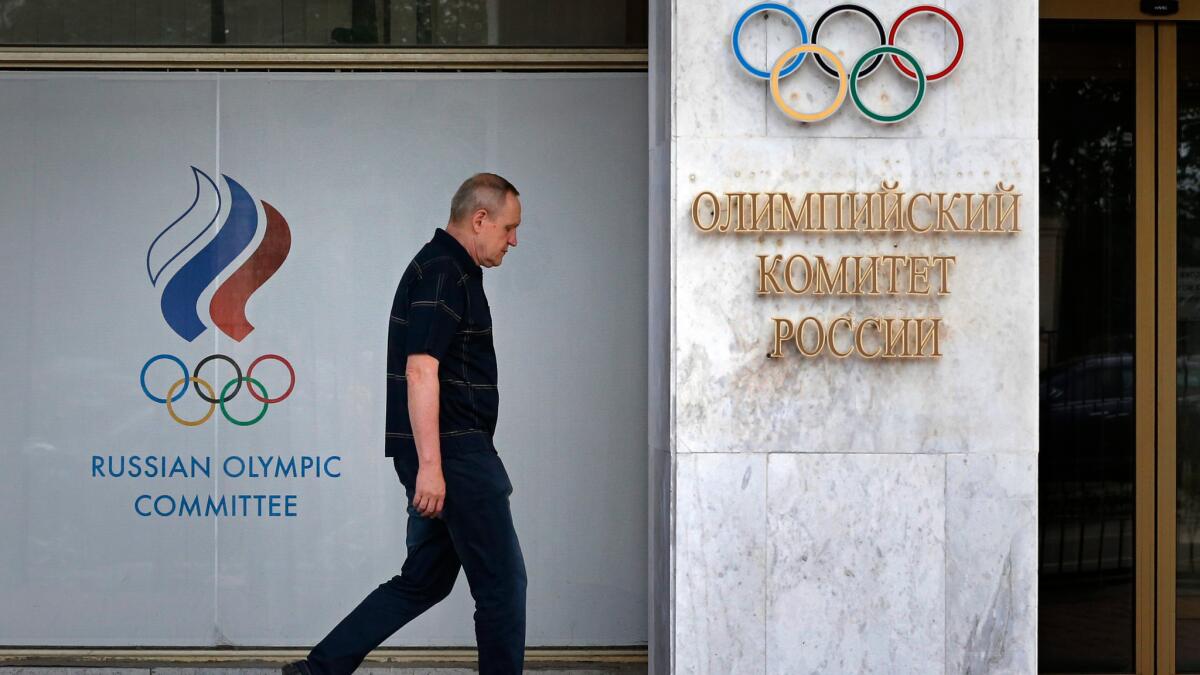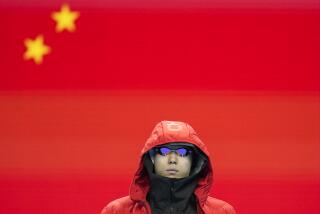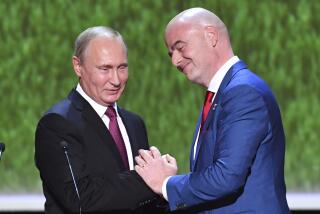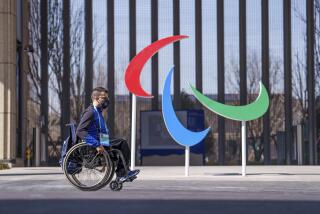Editorial: Ban Russia from the Rio Olympics

- Share via
The use of performance-enhancing drugs at the top levels of sports is a persistent and intractable problem. But the Russians have raised the sordid practice to an art form, according to an independent report released Monday.
Commissioned by the World Anti-Doping Agency, the report confirms the core accusations of Grigory Rodchenkov, the former head of Russia’s laboratory responsible for certifying that athletes have not used banned substances. It says that instead of ferreting out cheaters, Rodchenkov was personally involved in a scheme that reached to the top levels of the Russian sports ministry to cover up the use of banned substances by dozens of athletes who competed in the 2014 Sochi Olympics and the 2012 London Olympics, as well as the 2013 World Athletics Championships in Moscow and the 2015 World Swimming Championships in Kazan, Russia.
The IOC should, if its by-laws allow it, ban the entire Russian team from Rio.
How did they cover up the cheating? In part, by making false assertions that athletes’ tests were clean, according to Monday’s report. When a sample tested positive for banned substances, the deputy minister of sport would determine whether the cheating athlete would be protected or reported. In what sounds like an episode from the old “Mission: Impossible” television show, the Russians also turned to an agent of the Federal Security Service (a successor to the infamous KGB) to spirit dirty urine samples out of a secured testing room at the 2014 Sochi Olympics, circumvent the supposedly tamper-proof container seals and replace the tainted samples with frozen-and-thawed urine collected before the athletes began doping up.
The investigation by Canadian law professor Richard McLaren was conducted over 57 days — an insufficient amount of time, he said, to identify individual athletes who benefited from the cheating. The anti-doping agency has commissioned McLaren to keep digging and file as complete a report as possible. That’s a welcome step.
Yet the scope of the cheating already revealed means that the International Olympic Committee has a decision to make. With the Summer Olympics set to begin in Rio de Janeiro next month, anti-doping groups are urging a blanket ban on participation by Russian athletes.
The International Association of Athletics Federations, which oversees world track and field athletics, already has barred the Russian team from international competitions — including the Olympics — because of a related doping scandal. (Russia has appealed the ban.)
The IOC’s executive committee said Tuesday that it is seeking advice on its legal options, including banning all Russian athletes from the Rio games, and that it is urging the international sports community to not schedule any events in Russia. The committee also announced it will not issue credentials for the Rio games to members of the Russian Ministry of Sport, has created a disciplinary commission to review the 2014 Sochi doping tests and will not plan or support any competitions in Russia.
Banning the entire Russian delegation from the summer games raises an interesting question about individual versus group punishment, and whether athletes who have not been found to have been doping should suffer for the dirty dealings of others. Collective guilt treads on dangerous ground, and risks denying due process. But as the World Anti-Doping Agency noted, the details in the McLaren report, along with allegations by Rodchenkov and others, make it clear that cheating is so rampant within the Russian athletic system — 580 positive tests covered up across 30 different sports — that a presumption of innocence may be misplaced.
The IOC should, if its by-laws allow it, ban the entire Russian team from Rio.
Why did the Russians cheat at such an epic scale? Apparently, a misplaced sense of national pride. After what McLaren described as a “very abysmal medal count” at the 2010 Vancouver Olympics, the Russians decided to cheat to avoid a similar embarrassment at the 2014 games it hosted on its own territory in Sochi. Russia, unsurprisingly, denies that it has engaged in systematic cheating and has attacked Rodchenkov’s credibility. Yet it also suspended at least four high-level sports ministry officials.
It would be naive to think doping is limited to Russia. Just look at the parade of suspensions among professional American athletes caught using banned substances, not to mention the fall of cycling legend Lance Armstrong. It would be naive, too, to think that banning Russia from the games will end the problem. But it would send the necessary message that cheating is unacceptable, even if it is just for the sake of a game.
Follow the Opinion section on Twitter @latimesopinion or Facebook
More to Read
A cure for the common opinion
Get thought-provoking perspectives with our weekly newsletter.
You may occasionally receive promotional content from the Los Angeles Times.









